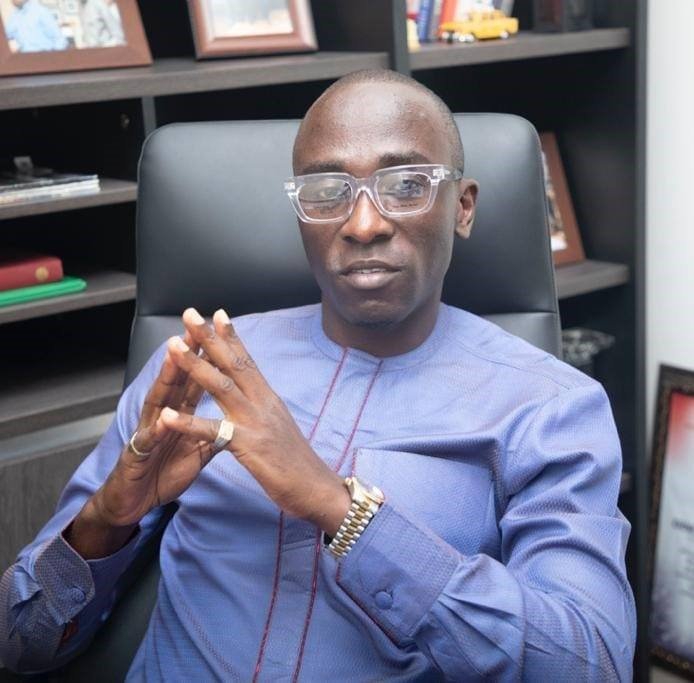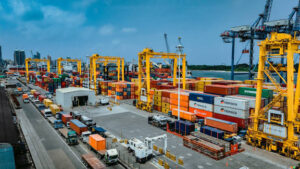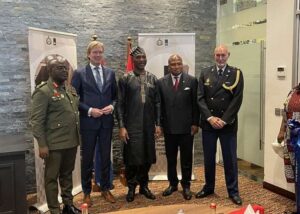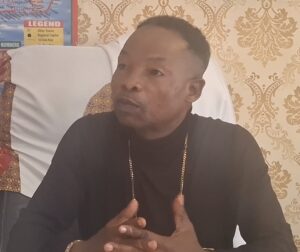
Ghana National Gas Company Limited (GNGC), Ernest Owusu Bempah
It has emerged that the ENI Sankofa Gas pipeline deal, signed during former President John Mahama’s administration in 2016, continues to pose a serious financial challenge to the nation.
The World Bank Group supported Ghana’s Sankofa Gas Project through a package of World Bank Guarantees to the tune of $700 million.
That followed a request made by the then Mahama government in that direction, as the Breton Wood institution sought to invest in cleaner and more affordable energy for Ghana.
Information available to the Daily Statesman indicates that the Akufo-Addo government has so far paid an amount of $3.6 billion in the past six years for the deal seen as “the most expensive gas contract in the whole world”.
Speaking exclusively with this paper, the Director of Public Affairs at the Ghana National Gas Company Limited (GNGC), Ernest Owusu Bempah, explained that Ghana is paying $46 million monthly, making it $552 million yearly, in the contract running for over 20 years.
“The Akufo-Addo government had no choice but to continue with the contract when it came into office because of the terms and conditions,” he said.
He further alleged that Mahama government signed the contract for 20 to 25 years, giving the other party a monopoly for that period, an arrangement the IMF has questioned.
According to him, the negotiated price of the gas from the Sankofa fields is too high by world standards. “It is even higher than the price of gas sold to Ghana from Nigeria, which stands at $8.3/MMBtu, delivered at Takoradi. It is even more expensive than our own Atuabo Gas price of $8.8/MMBtu delivered at Takoradi. At the negotiated gas price of $9.8/MMBtu, it puts to great risk Ghana’s potential of becoming the Petrochemical hub of the region to Nigeria, due to that country’s lower gas prices,” he said.
Current challenges
In his view, Ghana would not have been at the point of desperately seeking some 3$b from the IMF, but for some of these “reckless, dubious contracts signed by the Mahama administration.”
Mr Owusu Bempah further explained that the contract is partly to blame for the current economic challenges facing the country.
Recently, the World Bank Country Director of Ghana, Pierre Frank Laporte, outlined losses in the energy sector of the economy as one the challenges that forced Ghana into the current financial predicament.
In a media interview, Mr Laporte indicated that losses in the energy sector had been compounding the challenges, saying “the big issue has been on the fiscal side”.
“For instance, on the revenue side, we have always been saying that this is an area where Ghana should do better. We are encouraged by the fact that this should be one of the areas for potential programme and support from the World Bank. The problem is fiscal, not just revenue.
“The problem is that there are also spillovers from other sectors; for instance, the energy sector. There is about one billion dollars going to the energy sector because of losses. The sector itself is not financially viable, and to keep it going you have to subsidize. Actions are required. Of course, with COVID, the general business environment is being a bit more difficult.”
Source: Daily Statesman







Thanks for sharing. I read many of your blog posts, cool, your blog is very good.
Your article helped me a lot, is there any more related content? Thanks! https://accounts.binance.info/register?ref=P9L9FQKY